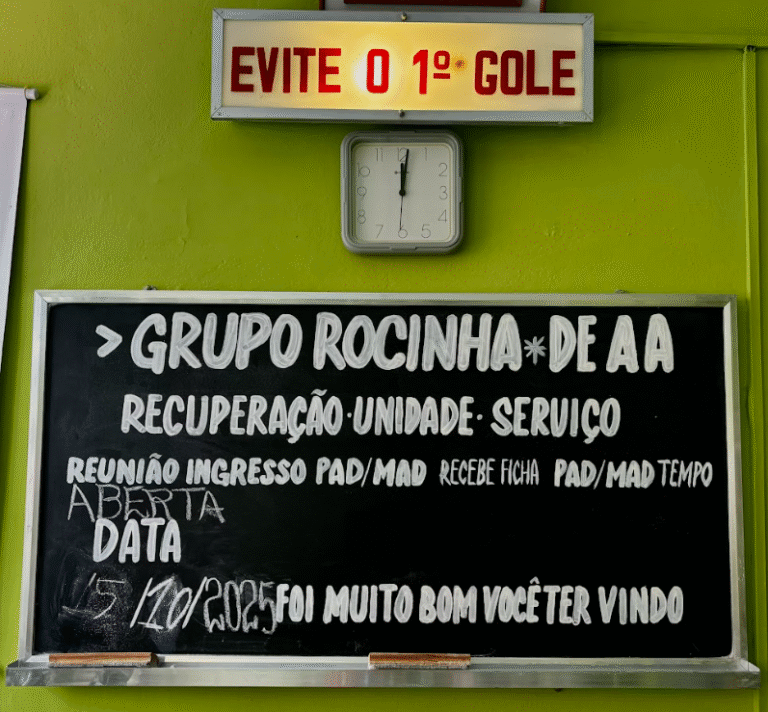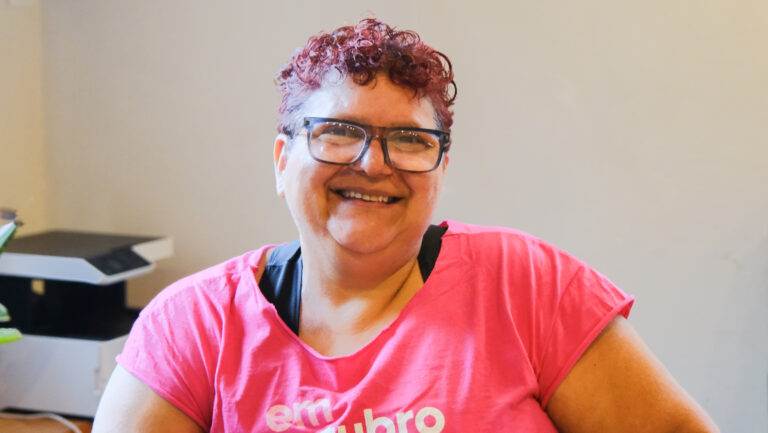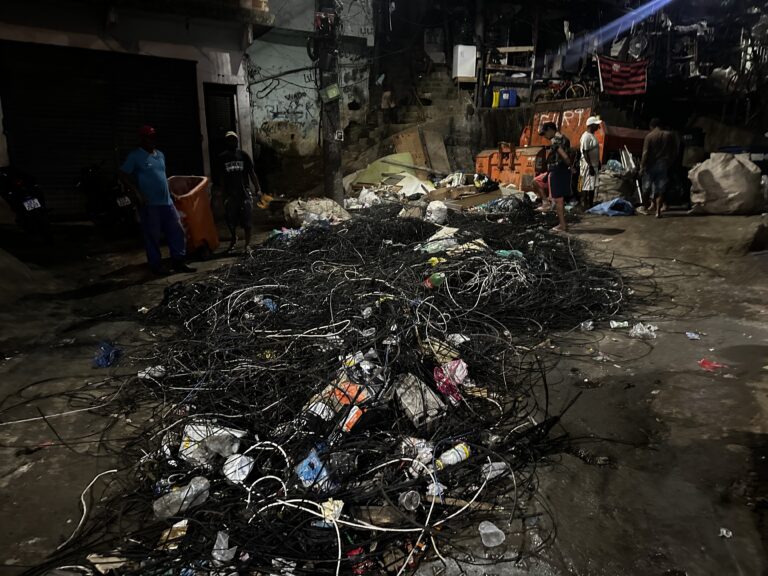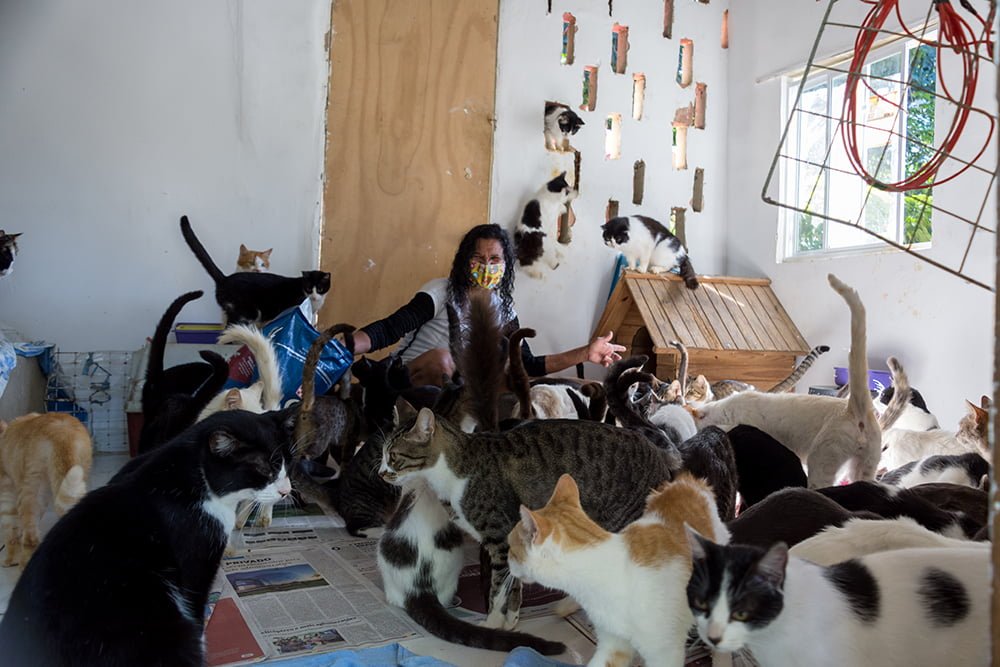
Abrigo para animais abandonados na Rocinha sobrevive com doações
When entering many homes in Rocinha, it is common to be greeted with barking and licks from a dog or a suspicious look from a cat that, little by little, gets used to your presence. And at the national level it is no different. According to the Brazilian Institute of Geography and Statistics (IBGE), in 2018, Brazil ranked second in the ranking of countries by the number of pets with about 140 million pets. Also according to the survey, Brazilians have more dogs and cats than children at home.
However, to the same extent that many residents choose to have a pet, the situation of abandonment in Rocinha is also high. And when observing this scenario, the resident Ruth Nascimento, 56 years old, created the shelter “Flor e Xavier: corner of the abandoned”, where she survives on donations for eight years and shelters around 160 abandoned cats.
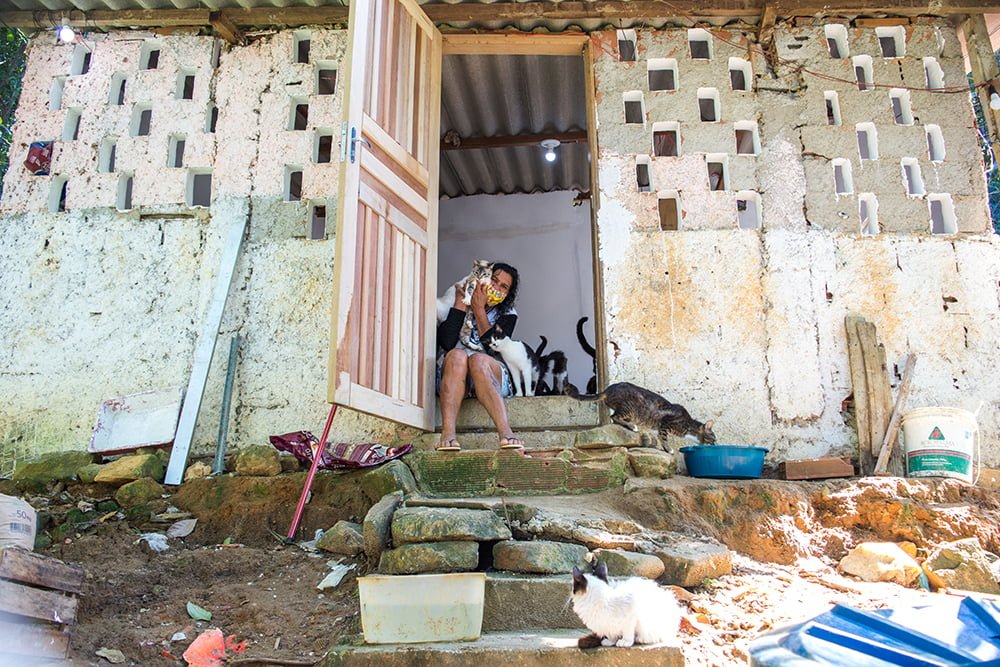
Photo: Eduardo Herculano
“I’ve been taking care of cats for 17 years. And it makes me sad when I see any of these animals on the street, that’s why I pick them up, take care of them, castrate them, sometimes I return them and sometimes I don’t. Because I feel sorry for them. I do all this out of love, because I don’t receive a sufficient amount of donations to maintain my shelter. Some people help me, but it’s not enough. And it’s a difficult job, because it costs a lot with medicine, food”, said the resident.
According to a survey, Rocinha has around 6,940 dogs and 1,390 cats. And during the covid-19 pandemic, in the state of Rio de Janeiro, the number of abandoned animals rose 40%, reaching 1.3 million. For veterinary doctor Daniele Pimentel, 44 years old, who worked for three years in Rocinha, one of the main reasons for this abandonment is the lack of income to support these animals.
“Acredito que o abandono seja, muitas vezes, por falta de dinheiro para arcar com o tratamento e manutenção do animal e também pela procriação sem controle. O que vi muito na Rocinha são pessoas que criam os gatos soltos pela rua, e estes têm vários filhotes que também ficam pelas ruas. Por isso, a esporotricose é bem grave na Rocinha. E é necessário um tratamento longo, porque é uma doença que pode passar para os humanos. Então, o dono escolhe abandonar o animal”, afirmou a veterinária.
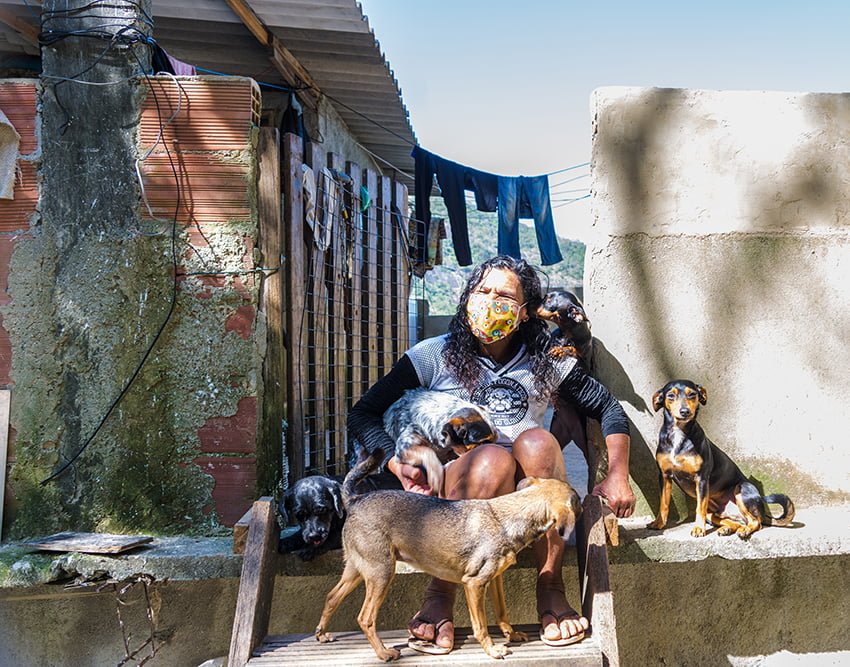
Apesar do cenário desfavorável, tanto pela quantidade de bichos espalhados quanto pela falta de recursos para manter o abrigo ativo, o amor pelos animais faz com que Ruth mantenha o espaço, mesmo que isso demande um tempo a mais ou a faça perder algumas oportunidades na vida.
“Eu já perdi muita coisa na vida por causa dos meus bichinhos e não me arrependo. A última coisa que perdi foi o meu marido, após 17 anos de casamento. Hoje em dia, sou eu, meus animais e uma voluntária que me ajuda quando pode”, relatou ela que, com a fé acredita que tem um lugar especial reservado após a morte.
“Anyone who loves and takes care of animals has a little place in heaven. I’m sure of that. Every time someone calls me to rescue an animal, and I can’t hug all of Rocinha, unfortunately. But people call me, ask me help, and I will. And that’s my job: to take care of the animals while I’m alive.”
Those interested in helping the shelter can contact Ruth at (21) 99733-2094.

